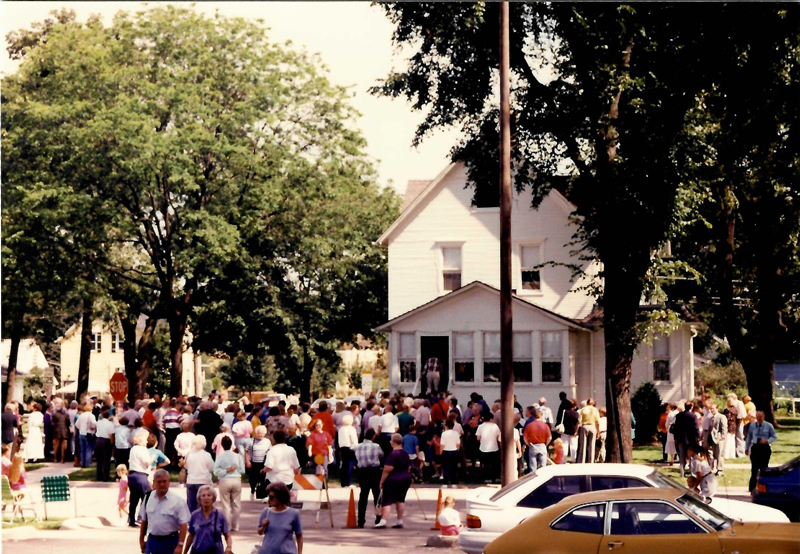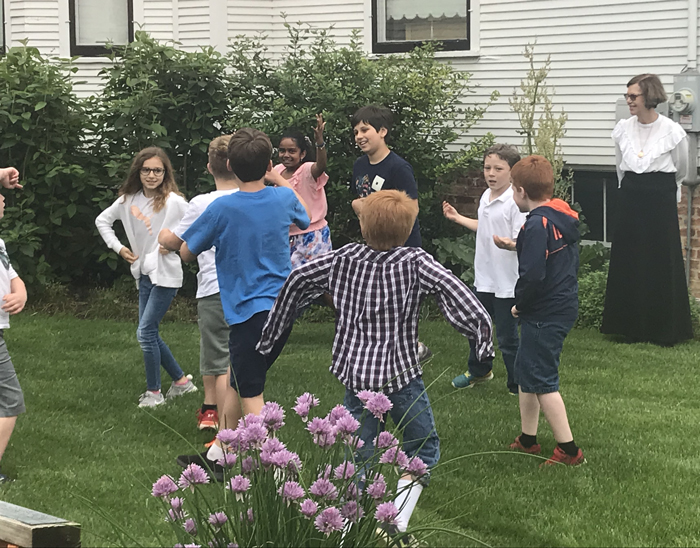at the Mount Prospect Historical Society

In September, the 1906 Dietrich Friedrichs House (101 S. Maple Street, Mount Prospect) will celebrate its thirtieth birthday as a Museum and home for the Mount Prospect Historical Society. The Museum was dedicated in 1992. Join us for a special Second Sunday on September 11, 2022 from 11:30 am to 1:30 pm to help us celebrate.
The House, restored and decorated to represent 1917, the year Mount Prospect officially became a chartered town, will be open for tours. Many artifacts from the Friedrichs family are on display.
Central School (103 S. Maple Street, Mount Prospect) will also be open for some birthday-themed activities. While you’re there, sign a special birthday card and grab a slice of birthday cake.
“We’re excited to welcome people into this historical home and celebrate this momentous occasion,” said Emily Dattilo, Director of the Society. “A visit is like stepping back into the past.”
This is a free event and all ages are welcome.
We’re right in the neighborhood. Come see what we have to offer! For more information call 847-392-9006.




